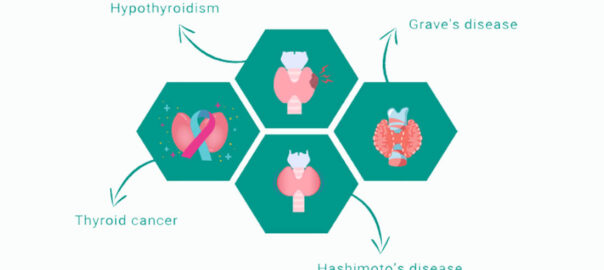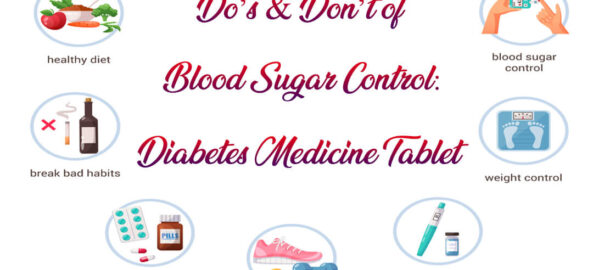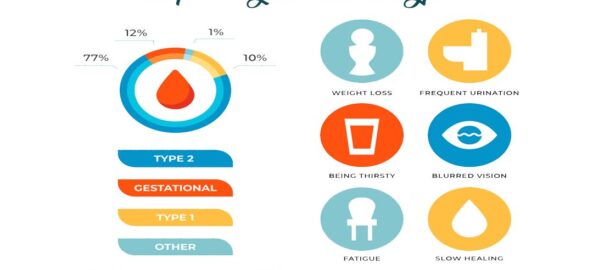
For individuals with diabetes, a strict diet is crucial in regulating their blood sugar. Knowing what to eat and when ensures a healthy and balanced lifestyle. A balanced diet effectively tracks your food intake and sustains a healthy diet. This blog post focuses on sharing a diet plan for people with diabetes with natural medicine for diabetes that is both delicious and nutritious. Whether you’re just starting to manage diabetes or have been doing so for a while, this diet guides you in making informed food choices and staying committed to your health goals. So, let’s dive in and discover some healthy and tasty meal options for people with diabetes!
When it comes to medicine for prediabetes, what you eat plays a crucial role in controlling your symptoms. Opting for meals that have a balanced macro and micronutrient profile is essential. It means incorporating various foods that provide the necessary carbohydrates, proteins, fats, vitamins, and minerals to maintain optimal health. Low-glycemic-index foods such as legumes, whole grains, and lean proteins are especially important as they help regulate blood sugar levels and prevent spikes. Achieving better health and effectively controlling diabetes symptoms can be attained naturally by incorporating these foods into your daily diet.
Diet for Blood Sugar Control in Diabetes
Eating healthy for diabetes management is crucial in preventing complications associated with diabetes, such as heart disease. Managing diabetes involves a significant focus on dietary choices. It is essential to choose foods that are low in sugar, fat, and salt. These foods aid in regulating blood sugar levels and lowering the risk of developing elevated cholesterol and hypertension. When managing diabetes, it’s important to focus on a balanced diet along with natural medicine for diabetes that helps regulate blood sugar levels.
Here are some foods that can aid in diabetes control:
1. Non-Starchy Vegetables:
Vegetables include spinach, broccoli, kale, peppers, and cauliflower. They are low in carbohydrates and high in fibre, which helps control blood sugar levels.
2. Whole Grains:
Choose whole grains like rice, quinoa, oats, and whole wheat bread rather than refined grains. Whole grains contain more fibre and have a lower glycemic index, which means they have a lesser impact on blood sugar levels.
3. Lean Proteins:
Go for lean protein choices like tofu and eggs; they can aid in moderating carbohydrate digestion and preventing abrupt rises in blood sugar levels.
4. Healthy Fats:
Add avocados, nuts and seeds to your meals for healthy fats. These fats can enhance insulin sensitivity and maintain steady blood sugar levels.
5. Low-Fat Dairy:
Choose low-fat dairy products like skim milk, yoghurt, and cottage cheese. They provide calcium, protein, and other essential nutrients without adding excessive saturated fats.
6. Berries:
Like strawberries, blueberries and raspberries are low in sugar, fibre, and antioxidants. They keep blood sugar levels relatively stable while satisfying cravings for sweetness.
7. Legumes:
Legumes, including lentils, chickpeas, and black beans, are packed with fibre and protein, making them an ideal selection for controlling blood sugar levels effectively.
8. Fish:
Consuming fatty fish like salmon, mackerel, and sardines, which are packed with omega-3 fatty acids, may lower the likelihood of heart disease and enhance insulin sensitivity.
9. Cinnamon:
While not a food, adding cinnamon to your meals or beverages may help improve insulin sensitivity and regulate blood sugar levels.
Finally, it is imperative to mention that making healthy food choices is an effective way of treating diabetes naturally. Prioritizing vitamins, minerals, and antioxidants in your diet can strengthen immunity, improve digestion, and reduce inflammation—vital for diabetes control. The diabetes control medicine and your dietary preferences are pivotal in maintaining stable blood sugar levels and nurturing your overall well-being.
Benefits of Eating a Balanced Diet for Diabetics
Eating a balanced diet is crucial for individuals with diabetes as it offers several benefits that assist in controlling blood sugar levels and enhancing overall well-being. Here are the key benefits of following a balanced diet:
- Blood Sugar Control: Balanced nutrition ensures a continuous release of glucose into the blood, safeguarding against sudden rises or falls in blood sugar levels. It helps individuals with diabetes control their blood glucose levels, reducing the risk of hyperglycemia (high blood sugar) or hypoglycemia (low blood sugar).
- Weight Management: A key aspect of diabetes care is maintaining a healthy weight, as excess weight can contribute to insulin resistance and worsen blood sugar control. A balanced diet helps control calorie intake and promotes gradual, sustainable weight loss if needed.
- Nutrient Intake: A balanced diet ensures diabetic patients receive essential nutrients, including vitamins, minerals, fibre, and protein, necessary for overall health and well-being. Nutrient-rich foods can also help reduce the risk of complications related to diabetes.
- Heart Health: Incorporating heart-healthy foods in your diet helps reduce the increased heart disease risk associated with diabetes. These foods can help lower cholesterol and blood pressure.
- Energy Levels: Proper nutrition provides diabetic patients with a steady source of energy, preventing fatigue and mood swings that can occur with blood sugar fluctuations. Balanced meals help maintain energy levels throughout the day.
- Blood Pressure Management: High blood pressure is a common complication of diabetes. A low-sodium, high-potassium diet aids blood pressure control and prevents hypertension-related issues, promoting overall cardiovascular health.
- Improved Digestion: Diabetics can improve digestion and relieve constipation by adding fiber-rich foods like whole grains, veggies, and legumes to their diet.
- Enhanced Quality of Life: Following a balanced diet can helps manage diabetes, and also contributes to an improved quality of life. Stable blood sugar leads to higher energy, improved mood, mental clarity, and lowers diabetes-related complications risk, optimizing overall health. It allows them to engage in daily activities, pursue hobbies, and also enjoy a higher quality of life.
Lifestyle Changes: An Natural Medicine for Diabetes
- It is important to remember that controlling diabetes through diet is about making sustainable lifestyle changes. It is not just about what you eat, but also how much and when you eat.
- Consider consuming smaller, frequent daily meals to maintain consistent blood sugar levels. It is also important to stay hydrated and limit the intake of sugary drinks.
- Moreover, a consistent exercise routine and weight management are key factors in effectively controlling diabetes.
- You can take a proactive approach like integrating healthy fats, low-fat dairy items, and vital vitamins and minerals into your dietary regimen. Regular exercise and hydration can also help controlling your diabetes and promoting overall health and wellness.
Conclusion
Managing diabetes requires a well-thought-out daily menu plan that is both wholesome and delicious. You can achieve both optimal health and steady blood sugar by making wise dietary choices and managing your portion sizes. The diet we’ve shared in this blog post serves as a starting point for creating your personalized menu plan. With the help of these tips and natural medicine for diabetes, you can tailor your meals to meet your specific dietary needs and lifestyle. By making informed decisions about your food choices, you can take control of your diabetes and enjoy a healthy and balanced lifestyle.










